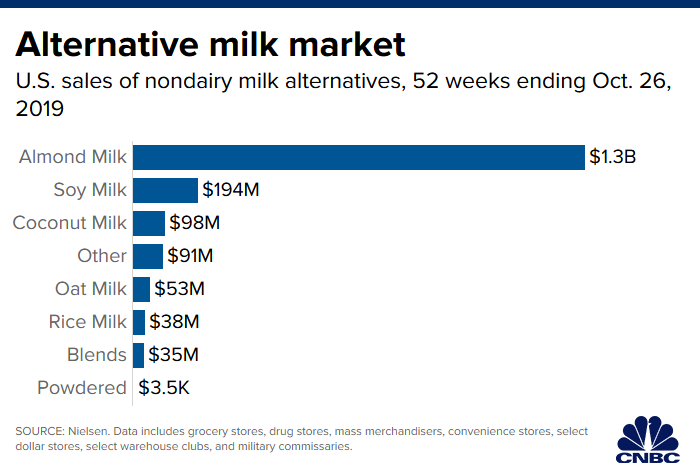I really valued what I took away from this course, as it presented new and challenging topics that I had never considered before. It also gave me the opportunity to conduct research on a topic I took a great interest in: the sustainability of alternative milk products. I was inspired by a previous blog post I wrote, about a climate change food calculator that calculates the ghg emissions, water usage, and land usage of 40 different foods.
With the massive changes in the dairy and alternative milk market, I decided to use this as a jumping point to look into three milk products: milk from dairy cows, almond milk, and oat milk. I researched and compared all three products with reference to water usage and GHG emissions. I was mostly interested in determining if alternative milks were actually more sustainable, and if so which was the most sustainable milk?

I looked closely at the sections about food systems and the effect of climate change. I determined that the ecological system and the food production system are incredibly intertwined and interdependent. The ecological and biological systems greatly affect how food is grown and produced, and the food production system has had very adverse effects on the environment.
My research only scratched the surface of sustainable food production practices, but it is a critical piece in the future of food production. This course gave me a deeper understanding of systems theory that allowed me to analyze a topic in a more meaningful way.
Works Cited:
Guibourg, C., & Briggs, H. (2019, August 09). Climate change food calculator: What’s your diet’s carbon footprint? Retrieved June 09, 2020, from https://www.bbc.com/news/science-environment-46459714
Image:
Lucas, A. (2019, November 13). 5 charts that show how milk sales changed and made it tough for Dean Foods to avert bankruptcy. Retrieved June 09, 2020, from https://www.cnbc.com/2019/11/13/5-charts-that-show-how-milk-sales-have-changed.html
